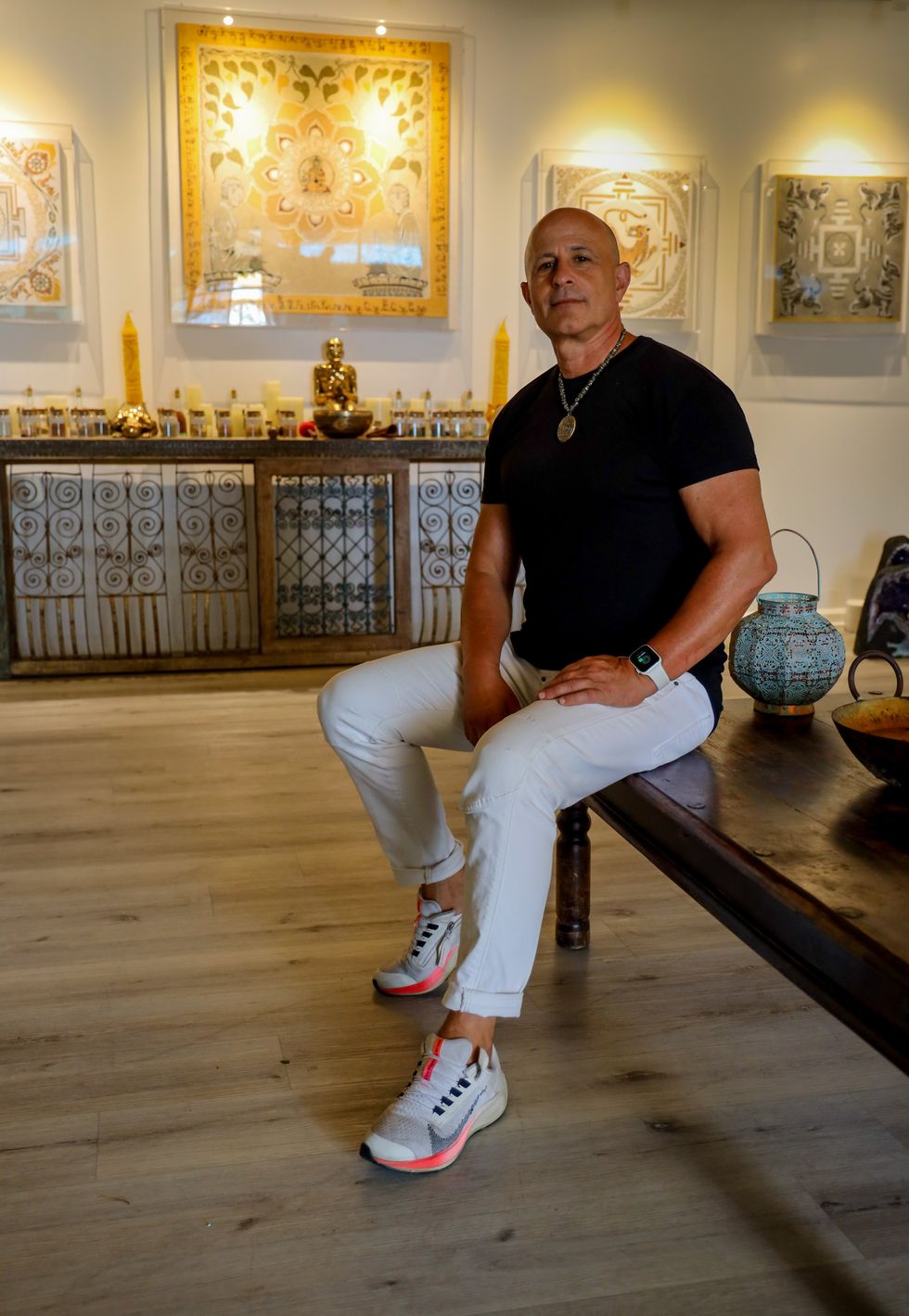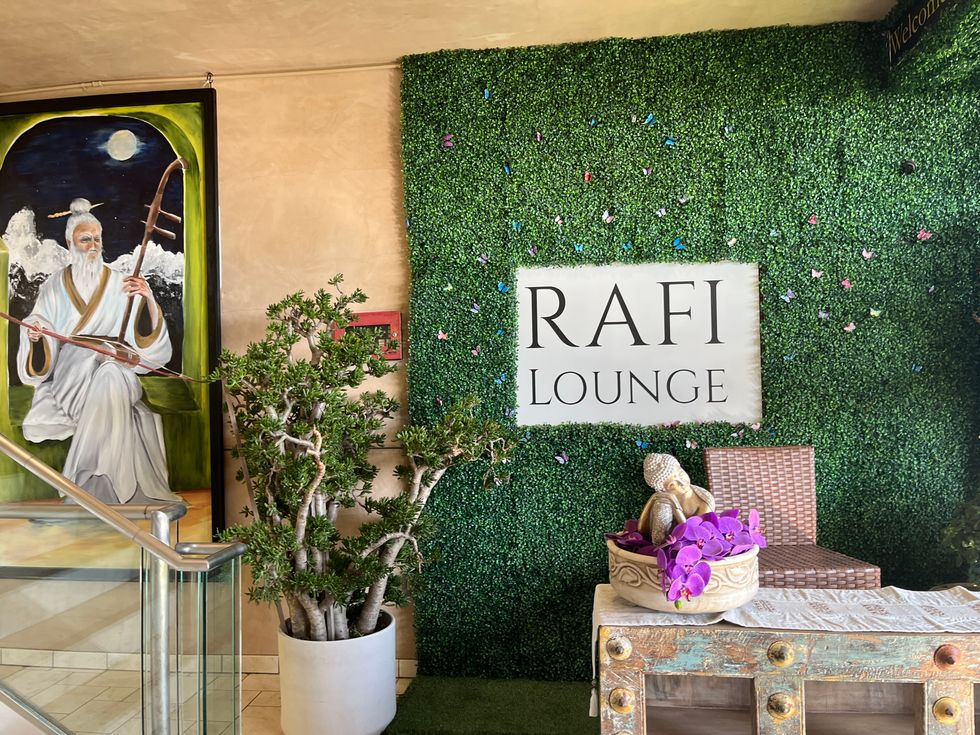In January, web3 infrastructure and hardware company Spatial Labs landed $10 million in funding led by Blockchain Capital, making founder Iddris Sandu the youngest black entrepreneur to raise a double digit seed round. Marcy Venture Partners, the firm co-founded by Jay-Z also participated in this round.
“Moments like this give more founders and more VCs the confidence to back and be confident in sort of their general investment thesis around focusing on women of color, focusing on founders of color,” Sandu expressed. “Moments like this is what makes it worth it and is really what's responsible for breaking down those barriers.”
In 2020, Sandu founded Spatial Labs to do exactly that–build a company that is developing technologies that can make an impact globally.
Last year, the Marina Del Rey-based startup introduced its first product, a microchip called LNQ (pronounced link) to the world. Sandu also launched Gen One Hardwear , his clothing line where he embedded the LNQ microchip into each garment.
“What we've engineered is the nutritional facts of fashion,” Sandu told dot.LA. “It allows anyone that's either purchasing, has purchased or even is interacting with that item to unlock the nutritional facts around that product.”
The startup’s microchip acts like a QR code and all you need to do to gain access to the information is tap the LNQ with your phone. Sandu said you will learn about “where it was made, what materials it was made from, where the materials were sourced, whether the item is sustainable or not, and even lets you know if that item is new, or if it was owned by a previous person.”
In just a week and a half, Spatial Labs made $150,000 in sales and sold out of all its inventory.
“Now we've been licensing that chip technology to other brands to incorporate into their products,” Sandu said.
Though Sandu was unable to share which brands Spatial Labs is currently working with, he said that the price point for each LNQ microchip costs $3 and it can vary depending on the amount the brand needs.
Even though the overall venture funding in the U.S. dropped in 2022 from $337 billion to $214 billion, Black founders were disproportionately hit by the decline.
“Being a founder of color, there is no bull market,” Sandu told dot.LA. “It's always a bear market.”
In 2022, Black web3 founders raised $60 million out of the $11.9 billion given to all U.S. web3 startups. While this number is significantly higher than the $16 million Black founders received in 2021, the total percentage of the money raised for founders of color remains the same, a staggering 1%.
It’s a reality Sandu is familiar with. “You're expected to not have the opportunity to fail or not have the ability to figure things out,” he said. “The first time that you launch something you have to almost push yourself to this level of pressure and be perfect.”
But Sandu hopes his achievement will help motivate other Black founders and show them that raising capital is attainable.
“We (Spatial Labs) were able to raise during a market like this and that shows people that it's less about the story,” Sandu said, “but it's more about the actual product and its global impact that it became so undeniable for them to invest.”
Adding that, “they (Blockchain Capital) are the largest VCs in blockchain and they understood just how revolutionary this tech could represent.”
In the last two decades, some of the most crucial moments in technology, Sandu said, “have come from strides within hardware.” For instance, when Apple launched the iPhone and Mac or when Tesla developed their own vehicles on top of being a software company, they became the standard for other tech companies.
“Today in tech, a lot of diversity looks like affording people of color the opportunity to build these systems that weren't really designed for us to begin with,” Sandu stated, “I always love the idea of being able to show the boundaries of where technology could go in respect to color or race, and the only way that I could do that was through creating hardware.”
He said Spatial Labs’ LNQ is “able to create a seamless way for people to interact with products in a completely unique way, offering more than just sort of like this ethical sustainability factor.”
The microchip will allow brands the ability to add loyalty programs directly into their products. One example Sandu shared was, “let’s say a brand like Fenty said Rihanna is going to be doing a surprise appearance, but your ticket to get in is this product (embedded with LNQ).”
He added, Spatial Labs’ technology is “creating loyalty programs, and immersive storytelling experiences directly into your product.”
- The Founders of Color Changing LA's Startup World ›
- Clare Paint Founder Nicole Gibbons on How to Build Your Brand and Quit Your Day Job ›
- With New ‘Friends & Family’ Program, Grid110 and Slauson & Co. Want to Level the Startup Playing Field ›
- Jumpstart Nova Will Fund Black Health Care Startups with a New $55 Million Fund ›


 Rafi Lounge founder, Rafi Anteby, pictured here with his Mandala and sand collections. Photo: Rafi Lounge
Rafi Lounge founder, Rafi Anteby, pictured here with his Mandala and sand collections. Photo: Rafi Lounge  A view of the Rafi Lounge in the afternoon, before a yoga class. Photo: Rafi Lounge
A view of the Rafi Lounge in the afternoon, before a yoga class. Photo: Rafi Lounge  The lounge's entryway and check-in. Photo: Samson Amore
The lounge's entryway and check-in. Photo: Samson Amore  Anteby, right, speaks with a partner at his lounge in Malibu.Photo: Samson Amore
Anteby, right, speaks with a partner at his lounge in Malibu.Photo: Samson Amore